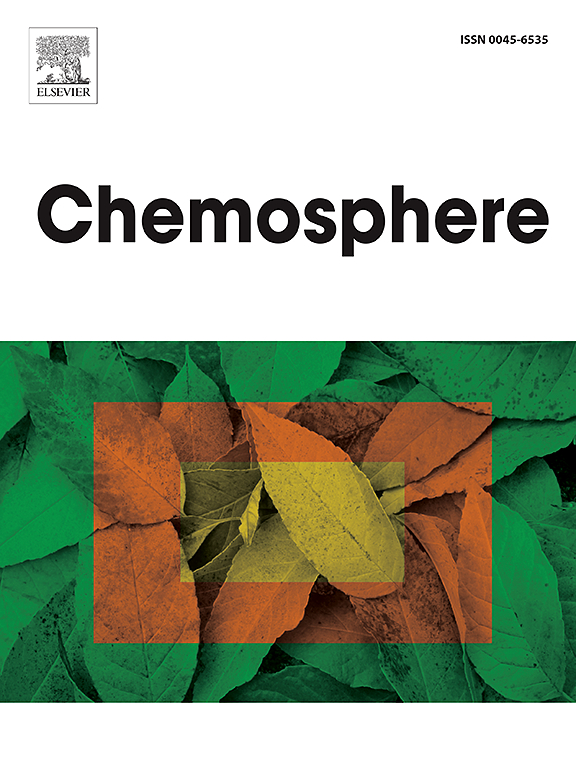Allelochemicals degradation and multifarious plant growth promoting potential of two Bacillus spp.: Insights into genomic potential and abiotic stress alleviation
IF 8.1
2区 环境科学与生态学
Q1 ENVIRONMENTAL SCIENCES
引用次数: 0
Abstract
The deposition of allelochemicals poses a challenge to continuous cropping. Microbial degradation is an efficient approach to degrade these hazardous compounds. The current study employed an integrated approach to explore the allelochemical degradation potential of Bacillus subtilis RS10 and Bacillus pumilus SF-4 and concurrently validate their capabilities to enhance plant growth and alleviate abiotic stress in pot experiments. During initial in vitro screening, both strains utilized more than 45% of benzoic acid within 60 h of incubation and showed maximum growth after 72 h. Meanwhile, the wheat seed germination rate was increased by 34.33% and 30% when treated with strain RS10 and SF-4, respectively. In addition, both strains demonstrated the capacity to promote wheat growth in terms of root length, shoot length, and plant weight in soil contaminated with p-hydroxybenzoic acid. To determine the associated mechanism of plant growth-promoting and allelochemical degradation, the culture extract of RS10 and SF-4 were analyzed using gas chromatography-mass spectrometry, which showed several plant growth-promoting volatile organic compounds, including propanediol and butanone. Genome-wide analysis unveiled several genetic loci associated with plant growth-promoting traits such as siderophore synthesis, phosphate solubilization, and biosynthesis of biocontrol compounds. Moreover, the in-depth comparative genome analysis, horizontal gene transfer, and strain-specific genes unveiled intriguing insight into the evolutionary dynamics of these strains and constraints driven by natural selection. In conclusion, the current study revealed the multifarious plant growth-promoting traits of strains RS10 and SF-4 and suggested an application of these strains as plant growth stimulators in soil contaminated with allelochemicals.

求助全文
约1分钟内获得全文
求助全文
来源期刊

Chemosphere
环境科学-环境科学
CiteScore
15.80
自引率
8.00%
发文量
4975
审稿时长
3.4 months
期刊介绍:
Chemosphere, being an international multidisciplinary journal, is dedicated to publishing original communications and review articles on chemicals in the environment. The scope covers a wide range of topics, including the identification, quantification, behavior, fate, toxicology, treatment, and remediation of chemicals in the bio-, hydro-, litho-, and atmosphere, ensuring the broad dissemination of research in this field.
 求助内容:
求助内容: 应助结果提醒方式:
应助结果提醒方式:


